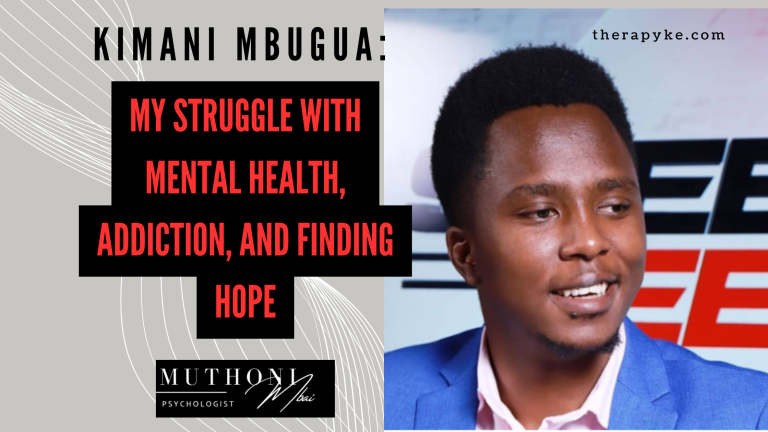
Difference Between a Therapist and a Psychiatrist

Just the other day, my cousin greeted me with, “How are you, our family’s psychiatrist? …uh, psychotherapist? Psychologist? Therapist? Which one is it?” the confusion on his face was unmistakable. This confusion is more common than you might think.
In fact, I cannot count the number of times I’ve been called a psychiatrist. Many people struggle to understand the difference between a therapist and a psychiatrist, a psychologist and a therapist, a psychologist and a psychiatrist – often using the terms interchangeably. Let’s clear up this confusion once and for all.
What Is the Difference Between a Therapist and a Psychiatrist?
At the core, the main difference lies in their education, training, and the services they provide.
- Therapist: This is a general term for professionals trained to help individuals manage emotional and psychological challenges through talk therapy.
Therapists can include licensed counselors, clinical social workers, marriage and family therapists, and psychologists.
Their focus is on exploring thoughts, behaviors, and emotions to foster personal growth and healing. - Psychiatrist: Psychiatrists are medical doctors (MDs or DOs) who specialize in diagnosing and treating mental health conditions. They are trained to prescribe medication and manage complex psychiatric cases.
Their primary approach often involves a biological perspective, using medication to address chemical imbalances in the brain.
For instance, if someone struggles with anxiety, they might see a therapist to explore coping strategies or address the root causes of their anxiety. If their condition requires medication, they may consult a psychiatrist.
Should I Start with a Therapist or Psychiatrist?
This depends on your specific needs.
- Therapist: If you’re dealing with life stressors, relationship challenges, or mild to moderate mental health issues like anxiety or depression, starting with a therapist is a great choice. Therapy can help you build skills to manage these challenges effectively.
- Psychiatrist: If your symptoms are severe, persistent, or significantly impact your daily functioning—such as severe depression, bipolar disorder, or psychosis—starting with a psychiatrist might be more appropriate.
They can assess your condition and prescribe medication if necessary.
Good news? You do not have to know who you are supposed to see first. Actually, the person you see will refer you to the right mental health professional.
For example, I am a psychologist. If I encounter a patient with severe schizophrenia symptoms, there is no way we will have therapy sessions. We have to start with the psychiatrist first to assess the condition and prescribe medication if necessary.
Often, therapy and psychiatry work hand-in-hand. You may start with one and be referred to the other for comprehensive care.
Can a Therapist Diagnose?
Yes, some therapists can diagnose mental health conditions. For example, clinical psychologists are trained to assess and diagnose disorders through clinical interviews and standardized assessments.
Licensed therapists, like social workers or counselors, may also provide diagnoses depending on their qualifications and the regulations in their region.
However, therapists cannot prescribe medication. If medication is needed, they may collaborate with a psychiatrist to ensure holistic care. This collaboration often leaves patients confused, thinking they need a psychiatrist for therapy when, in fact, therapy is a separate service.
Many at times, I have had patients coming to me for the therapy sessions also insisting that I should change their medication since it has some side effects for example. Convincing them that they have to go all the way to the psychiatrist’s room for that is often difficult.
What Is the Difference Between a Psychiatrist and a Psychologist?
This is another common point of confusion. While both play significant roles in mental health care, their approaches and training differ:
- Psychiatrist: A medical doctor focused on biological treatments, such as prescribing medication and managing severe mental illnesses.
- Psychologist: A professional with a doctoral degree (PhD or PsyD) in psychology who provides therapy, conducts psychological testing, and offers behavioral interventions.
Psychologists do not prescribe medication, except in a few jurisdictions where they have additional training and certification.
Even in my workplace, it’s not uncommon to hear a patient say, “I want to see a psychiatrist for my therapy sessions,” highlighting the widespread misunderstanding of these distinct roles.
Is a Therapist a Psychologist?
Not always. While all psychologists can be considered therapists, not all therapists are psychologists.
For example:
- A licensed marriage and family therapist (LMFT) focuses on relationships and family dynamics.
- A licensed clinical social worker (LCSW) addresses social and environmental factors impacting mental health.
- A psychologist often provides therapy but also conducts research, psychological testing, and assessments.
The term “therapist” serves as an umbrella, covering various professionals who use talk therapy as their primary tool.
Final Thoughts
Understanding the difference between a therapist and a psychiatrist is crucial for seeking the right kind of help. While a therapist delves into emotional and psychological healing through talk therapy, a psychiatrist takes a medical approach, often addressing mental health from a biological perspective.
Depending on your needs, you might benefit from one or both.
If you’re still unsure where to start, don’t hesitate to reach out through our Contact Page. We offer personalized guidance to help you navigate your mental health journey. Remember, seeking help is the first step toward a healthier, happier you.
Visit our Facebook page for more support. You can also chat with us through our WhatsApp number in our Contact Page.



